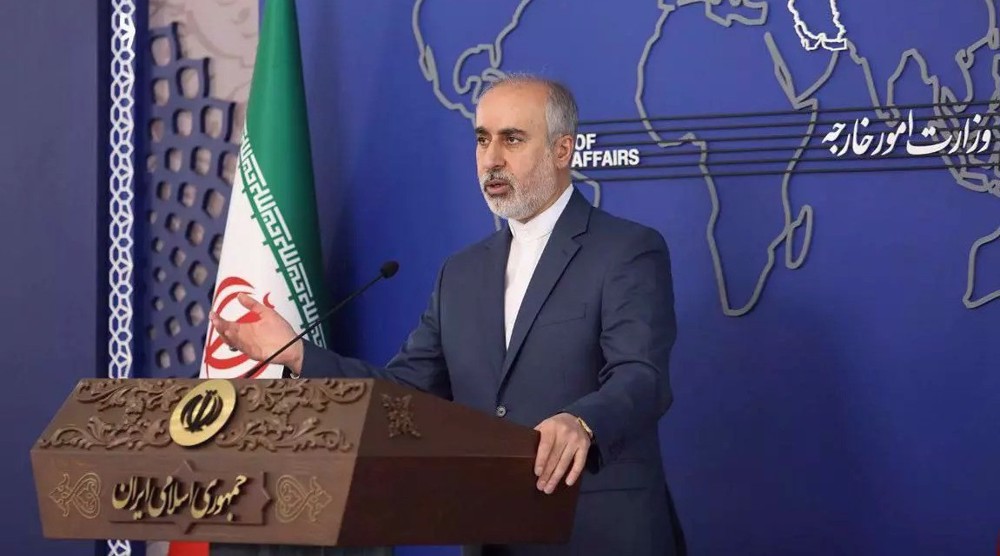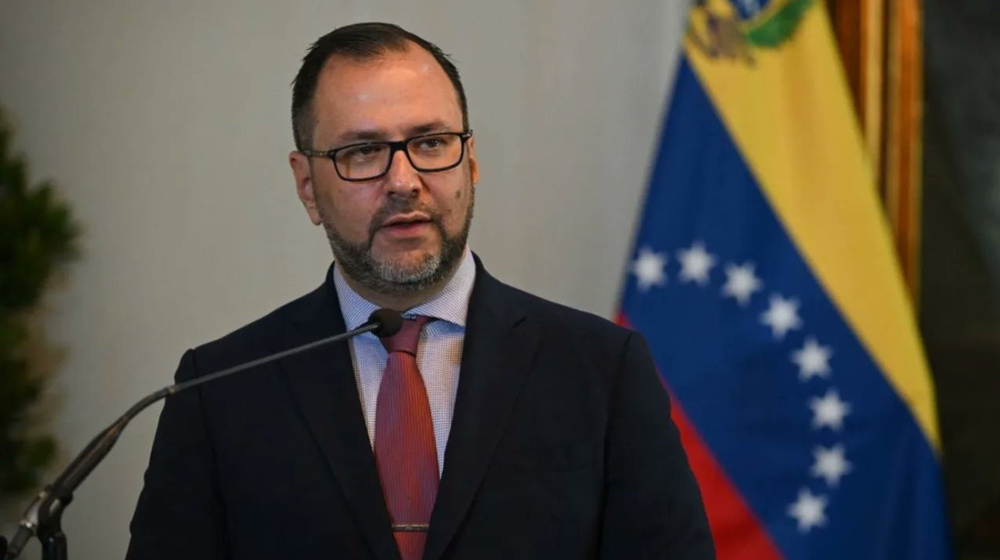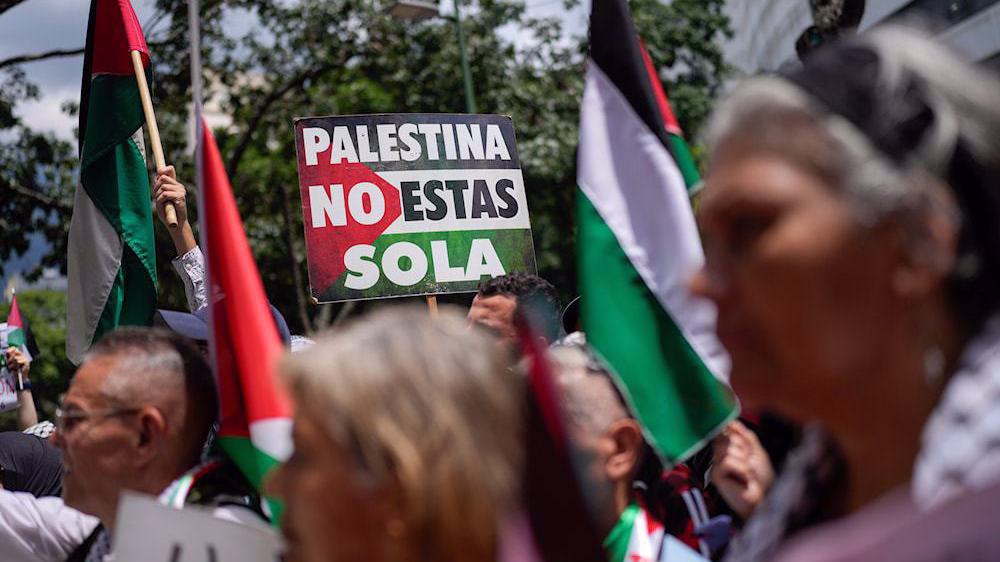Venezuela government, opposition hold talks amid tensions
Venezuelan President Nicolas Maduro has started talks with a group of opposition leaders in an effort to end the country’s political crisis and economic woes.
Early on Monday, Archbishop Claudio Maria Celli, a Vatican envoy to the talks, said the two sides had agreed on “national dialogue plenary meeting” to be followed by long-term dialogue.
The four-point agenda includes respect for the rule of law and government sovereignty, human rights and reconciliation, economic and social affairs as well as a timetable for holding elections.
Celli was among other international mediators from Spain, Panama and the Dominican Republic attending the talks.
He made the comments after Maduro opened the talks in the capital Caracas with leaders of five opposition groups on Sunday night.
Earlier, the Vatican official had described the start of the negotiations as something “very positive.”
He had asked both sides to agree “to some concrete gestures to give credibility to this process,” adding, “The country is waiting for authentic signals to comprehend that dialogue is a reality.”
Maduro has pledged an “absolute commitment” to dialogue with opposition groups, but some parties boycotted the talks.
“We must be optimistic when we’re talking about peace,” said Maduro, praising the role of the international mediators in the diplomatic process.
Fifteen parties belonging to the Democratic Unity coalition, which has been seeking to force Maduro from office, refused to attend the talks.
They demand the release of political prisoners as a condition for negotiations and call on the government to reverse its decision to cancel a recall referendum against the president.

“For an eventual dialogue to take place it has to be very clear from the outset that the aim is agreeing on the terms of a democratic transition in the remainder of 2016,” the parties said in a statement.
Maduro, however, said the quashing of the referendum was a decision of independent judicial and electoral authorities.
Last week, Venezuela’s National Electoral Council stopped the opposition’s recall referendum campaign against Maduro after five lower courts found that fraud had been involved in a petition required to trigger the vote.
Having failed to trigger anti-Maduro vote, the opposition is now trying to put Maduro on trial in the National Assembly.
The assembly, which is in control of the opposite, voted on Tuesday to bring him on trial for what it described as abandoning his “responsibilities.”
It summoned Maduro to appear in the parliament on November 1, but the embattled president is unlikely to attend the trial, which he described as a “parliamentary coup” attempt.
Maduro had formerly accused the opposition of having launched a US-backed economic war against the oil-reach country in an attempt to trigger a coup d’état.
The right-wing opposition hold the Socialist government of Maduro for the economic crisis, which has led to a high unemployment rate and soaring prices in the South American state.
Yemeni armed forces strike British oil tanker in Red Sea
VIDEO | Press TV's news headlines
VIDEO | American, Israeli rabbis call for ceasefire during protest near Gaza
Iran calls for enhanced defense cooperation with Russia
US campus crackdown: 500 pro-Palestinian protesters arrested
VIDEO | Yemenis rally in Sana'a in solidarity with Palestinians in Gaza
VIDEO | Jordanians march after Friday prayers in support of Palestinians
Far-right Israeli minister Ben-Gvir injured














 This makes it easy to access the Press TV website
This makes it easy to access the Press TV website